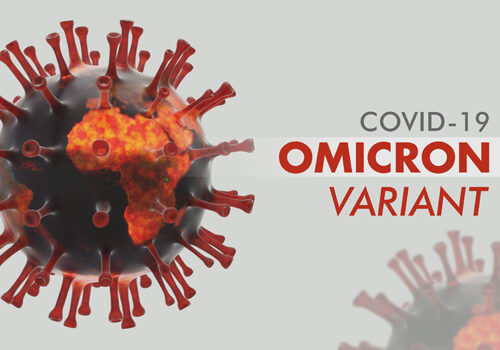
COVID-19 Omicron Variant: What you need to know.

Notice:
The information below was distributed directly from the Center for Disease Control website here: https://www.cdc.gov/coronavirus/2019-ncov/symptoms-testing/symptoms.html. If you believe you may have been exposed to COVID-19 you can call Marin City Health and Wellness Center for information on getting tested at 415-339-8813.
What We Know about Omicron
CDC is working with state and local public health officials to monitor the spread of Omicron. As of December 20, 2021, Omicron has been detected in most states and territories and is rapidly increasing the proportion of COVID-19 cases it is causing.
CDC has been collaborating with global public health and industry partners to learn about Omicron, as we continue to monitor its course. We don’t yet know how easily it spreads, the severity of illness it causes, or how well available vaccines and medications work against it.
Spread
The Omicron variant likely will spread more easily than the original SARS-CoV-2 virus and how easily Omicron spreads compared to Delta remains unknown. CDC expects that anyone with Omicron infection can spread the virus to others, even if they are vaccinated or don’t have symptoms.
Severe Illness
More data are needed to know if Omicron infections, and especially reinfections and breakthrough infections in people who are fully vaccinated, cause more severe illness or death than infection with other variants.
Vaccines
Current vaccines are expected to protect against severe illness, hospitalizations, and deaths due to infection with the Omicron variant. However, breakthrough infections in people who are fully vaccinated are likely to occur. With other variants, like Delta, vaccines have remained effective at preventing severe illness, hospitalizations, and death. The recent emergence of Omicron further emphasizes the importance of vaccination and boosters.
Watch for Symptoms
People with COVID-19 have had a wide range of symptoms reported – ranging from mild symptoms to severe illness. Symptoms may appear 2-14 days after exposure to the virus. Anyone can have mild to severe symptoms. People with these symptoms may have COVID-19:
- Fever or chills
- Cough
- Shortness of breath or difficulty breathing
- Fatigue
- Muscle or body aches
- Headache
- New loss of taste or smell
- Sore throat
- Congestion or runny nose
- Nausea or vomiting
- Diarrhea
This list does not include all possible symptoms. CDC will continue to update this list as we learn more about COVID-19. Older adults and people who have severe underlying medical conditions like heart or lung disease or diabetes seem to be at higher risk for developing more serious complications from COVID-19 illness.
We have the Tools to Fight Omicron
Vaccines
Vaccines remain the best public health measure to protect people from COVID-19, slow transmission, and reduce the likelihood of new variants emerging.
- COVID-19 vaccines are highly effective at preventing severe illness, hospitalizations, and death.
- Scientists are currently investigating Omicron, including how protected fully vaccinated people will be against infection, hospitalization, and death.
- CDC recommends that everyone 5 years and older protect themselves from COVID-19 by getting fully vaccinated.
- CDC recommends that everyone ages 16 years and older get a booster shot after completing their primary COVID-19 vaccination series. You are eligible for a booster at 5 months after completing Pfizer-BioNTech primary series, 6 months after completing Moderna primary series, and 2 months after the initial J&J/Janssen vaccine. Individuals ages 16-17 are only eligible for the Pfizer-BioNTech COVID-19 vaccine.
Masks
Masks offer protection against all variants.
- CDC continues to recommend wearing a mask in public indoor settings in areas of substantial or high community transmission, regardless of vaccination status.
- CDC provides advice about masks for people who want to learn more about what type of mask is right for them depending on their circumstances.
Treatments
Scientists are working to determine how well existing treatments for COVID-19 work. Based on the changed genetic make-up of Omicron, some treatments are likely to remain effective while others may be less effective.
Testing
Tests can tell you if you are currently infected with COVID-19.
- Two types of tests are used to test for current infection: nucleic acid amplification tests (NAATs) and antigen tests. NAAT and antigen tests can only tell you if you have a current infection.
- Individuals can use the COVID-19 Viral Testing Tool to help determine what kind of test to seek.
- Additional tests would be needed to determine if your infection was caused by Omicron.
- Visit your state, tribal, local, or territorial health department’s website to look for the latest local information on testing.
- Self-tests can be used at home or anywhere, are easy to use, and produce rapid results.
- If your self-test has a positive result, stay home or isolate for 10 days, wear a mask if you have contact with others, and call your healthcare provider.
- If you have any questions about your self-test result, call your healthcare provider or public health department.
Until we know more about the risk of Omicron, it is important to use all tools available to protect yourself and others.


